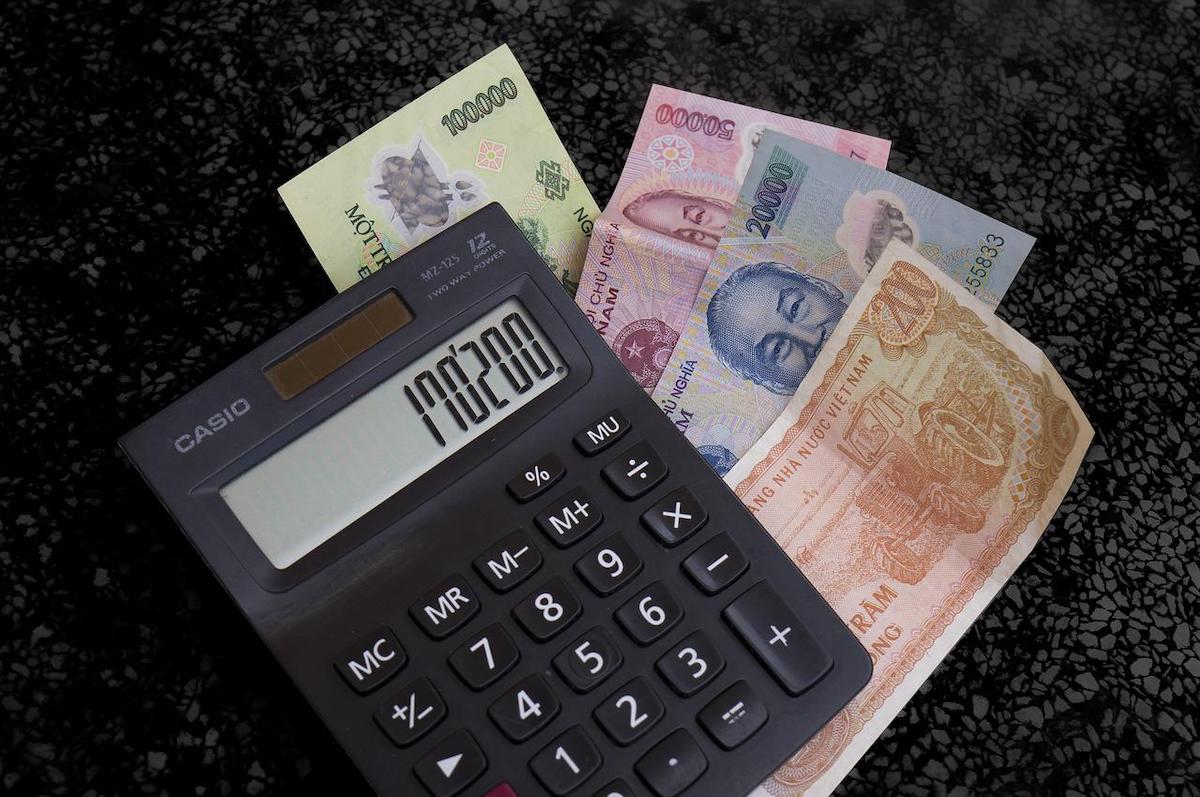
Vietnamese Dong to US Dollars: Simplifying Currency Conversion
By: Akaisha Kaderli
Skip to Section
How do you easily convert Vietnamese dong to US dollars? Our friends at Retire Early Lifestyle have a simple solution so you won’t need to break out the calculator every time you purchase something!

Via Pixabay
My husband, Billy, and I have recently arrived in Saigon, Vietnam. With eight million residents, most riding on motorcycles in swarms, it’s quite a bit different from sleepy Panajachel or Antigua, Guatemala. When the traffic light switches from red to green, it’s like a starting point in a race. There is no single-file and a massive group turns left or right. If you want to cross the street you simply walk into traffic with your arm raised up to alert the drivers that you are moving into the flow. Traffic goes at a crawling pace like a choreographed symphony of metal.
There is a lot to get used to—the change of weather, the contrast from Latin to Asian cuisine, the difference in languages, and the increase in the tempo of life. But the biggest challenge we face is figuring out the exchange rate of the US dollar to the Vietnamese dong.
One US dollar equals 21,277 dong. There are lots of zeros printed on the currency and to make it convenient for our comprehension, the first thing we did was to lop off three of them. It makes it easier figuring out pricing in our head and eliminates some punches on our calculators. For our purposes, we use 20 (thousand) dong to equal $1USD, 40 (thousand) dong equals $2USD, 60 (thousand) dong equals $3USD and so on.
One (thousand) dong equals 5 cents, 10 (thousand) dong equals 50 cents, 100 (thousand) equals $5USD, 500 (thousand) equals $25.
Are you confused yet? This system is supposed to make it a snap!
Without so many zeros, we find it simpler to navigate through most daily purchases. The colors of the money still do not have a lot of significance to us yet and different denominations are also assorted sizes. So our wallets have wads of colorful pieces of money sort of like Monopoly.
With the separation in language, everyone hugs their calculators since it’s a form of communication we all understand. Touch an object and the vendor brings out his cell phone-size number machine and begins pounding away. Step back or shake your head “no” and the price drops right away. Touch another item and the process begins all over again.
Popular grocery stores called coops have prices marked clearly. Again, we simply lop three zeros off the amount and begin our system to understand what we are paying. A 12-pack of individual serving sized yogurt costs 56,000 dong, or less than $3USD.
Taxi drivers use a meter here with the number “12” as the beginning fare. This, of course, means 12,000 dong but they have trimmed three zeros off as well for simplicity. A short five-minute ride is 27,000 dong, or less than $1.50USD.
Compass Living provides us with a private driver as a translator for when we go shopping, but it’s our style to be hands-on. I’m sure it will all get more familiar with time, but for now we have this short system in place and it seems to be working just fine.
About the Author
Billy and Akaisha Kaderli are recognized retirement experts and internationally published authors on topics of finance, medical tourism and world travel. With the wealth of information they share on their award winning website RetireEarlyLifestyle.com, they have been helping people achieve their own retirement dreams since 1991. They wrote the popular books, The Adventurer’s Guide to Early Retirement and Your Retirement Dream IS Possible available on their website bookstore or on Amazon.com.Featured image via Unsplash.
Information published on this website and across our networks can change over time. Stories and recommendations reflect the subjective opinions of our writers. You should consult multiple sources to ensure you have the most current, safe, and correct details for your own research and plans.
Frayed Passport is a participant in the Amazon Associates Program, an affiliate advertising program designed to provide a means for sites to earn advertising fees by advertising and linking to Amazon.com. We also may share links to other affiliates and sponsors in articles across our website.




